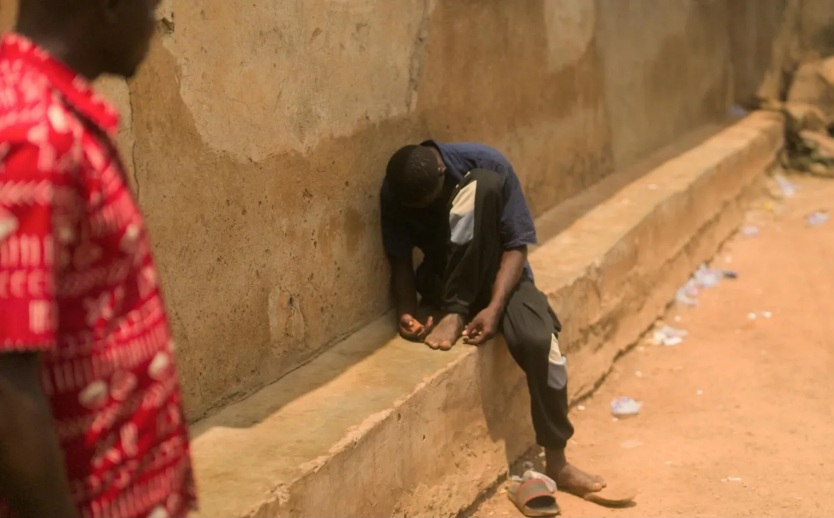Segun Atanda/
A BBC Eye investigation has uncovered how an Indian pharmaceutical company, Aveo Pharmaceuticals, is illegally exporting unlicensed, highly addictive opioids to West Africa, fueling a growing public health crisis across the region.
The Mumbai-based firm manufactures and distributes pills containing tapentadol, a powerful opioid, and carisoprodol, a muscle relaxant so addictive it is banned in Europe. This dangerous combination—packaged under various brand names—has been traced to the streets of Ghana, Nigeria, and Côte d’Ivoire, where it is wreaking havoc on communities, particularly among young people.
In a covert operation, BBC journalists infiltrated Aveo’s factory, posing as African businessmen seeking to supply opioids to Nigeria. Secretly recorded footage captures Vinod Sharma, a director at Aveo, openly boasting about the potency of his company’s products. When the undercover operative mentioned that the pills were being sold to Nigerian teenagers, Sharma showed no concern. Instead, he casually explained how taking multiple pills at once would produce a euphoric high.
Holding up a box of the illegally exported pills, Sharma even admitted: “This is very harmful for their health—but nowadays, this is business.”

Yesterday, the BBC hosted a private screening of India’s Opioid Kings for key stakeholders, including journalists, officials from the National Agency for Food and Drug Administration and Control (NAFDAC), and the National Drug Law Enforcement Agency (NDLEA). The event, held at Park Inn, Victoria Island, Lagos, provided an opportunity for attendees to watch the explosive documentary and engage in discussions about its implications.
After the screening, stakeholders were allowed to ask questions and share their perspectives on the growing opioid crisis. Concerns were raised about the role of regulatory bodies in stopping the influx of these drugs into Nigeria, as well as the need for stronger international cooperation to curb illegal pharmaceutical exports.
One of the most startling revelations in the documentary is that Aveo Pharmaceuticals is reportedly certified by the World Health Organization (WHO)—a detail that raises serious questions about oversight and accountability in the global pharmaceutical industry.
The BBC investigation reveals the catastrophic effects of these drugs on young people in West Africa. In Tamale, Ghana, drug addiction has become so rampant that local leader Alhassan Maham has formed a community task force to crack down on dealers. “The drugs consume the sanity of those who abuse them,” Maham said, comparing their spread to fire fueled by kerosene.
In Nigeria, where the opioid epidemic has reached alarming levels, Brigadier General Mohammed Buba Marwa, Chairman of the NDLEA, described the crisis as “devastating our youths, our families—it’s in every community in Nigeria.”
Under Indian law, pharmaceutical companies cannot manufacture or export unlicensed drugs unless they comply with the importing country’s regulations. However, Ghana’s drug enforcement agency confirmed that Aveo’s products, including a brand called Tafrodol, are unlicensed and illegal in the country—meaning the company is violating Indian export laws.
The Indian drugs regulator, the Central Drugs Standard Control Organization (CDSCO), acknowledged the country’s responsibility to global public health and vowed to take action against firms engaged in illegal exports. It also urged West African governments to strengthen their own regulatory systems to prevent such products from entering their markets.
Despite the mounting evidence, Aveo Pharmaceuticals and Vinod Sharma have refused to respond to the allegations. Meanwhile, young lives continue to be destroyed across West Africa by these deadly pills.
The full BBC Eye documentary, India’s Opioid Kings, is available on BBC iPlayer (UK) and BBC Africa’s YouTube channel (international audiences). The in-depth report can also be read on BBC.com.






